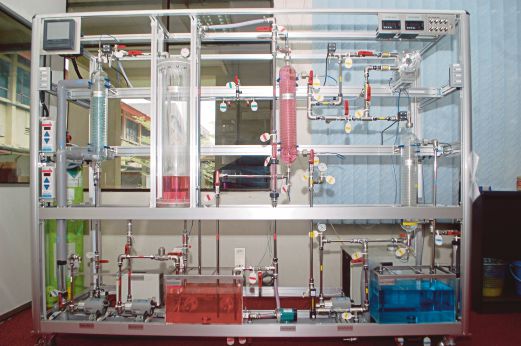KUALA Lumpur recently hosted the third international symposium on ocean thermal energy conversion (Otec). Held at the Universiti Teknologi Malaysia campus, the event brought together Otec experts from around the world. Close to 200 people attended the two-day event. The findings spoke about the tremendous potential Otec offers.
What became clear was that Otec has garnered support around the world in academia and business.
My first encounter with Otec was a few years ago when I was introduced to it by an old colleague, Datuk Dr Abu Bakar Jaafar, known among fellows of the Academy as Datuk A.B.J. He has now established a name among Malaysian science enthusiasts as a crusader of science and innovation. If we are looking for a model technopreneur, then he counts as one of the few in the country who qualify.
He is not one to give up on anything he believes in. I remember a few years back, he was pushing hard to commercialise a solar drying technology for smoked banana, or “pisang salai”. I was harassed into visiting his commercial operation in Malacca.
He had this dream to turn the venture into a big business for his home state.
And he was enthusiastic about the project and had thought about strategies to create the value chain for the product in Malacca.
Some people confided in me that he may have been a descendent of Hang Tuah or Hang Jebat, judging by his strong fighting spirit. It was unfortunate that the venture did not make it as planned. Marketing was the biggest challenge he found.
And now, he is passionate about Otec.
He has been going around for the past few years trying to convince people that Malaysia should not miss out on this opportunity. Since Otec is new to Malaysians, he met many sceptics.
Many question its economics. Some doubt that it will ever attract the right support to get it moving.
But giving up is never in his vocabulary.
His persistence found the right buy in.
UTM saw Otec as an opportunity for it to be among the world pioneers in this emerging technology for renewable energy, which promises to be sustainable. We should be reminded of the fact that not all renewables are sustainable. Well, there is no doubt that Otec is.
What was revealed about Otec by experts at the symposium proved to be eye-opening. It is easy to understand why. What Otec offers will provide the answers we need in the search for sustainable energy. What better way to produce the energy that the world needs than to generate it from the most abundant resource in the planet, water.
Otec involves the exploitation of the temperature gradient in many parts of the ocean. The difference in temperatures is harnessed to drive power turbines to generate electricity. Experts say a temperature difference of around 20°C would do the trick. And Malaysia has such spots.
But that is not all. Through Otec, a major by-product is clean water. We know that water is also what the world desperately needs in view of the expected shortages in the coming years, no thanks to climate change.
An important plus point for Otec is its low carbon character.
In fact, Otec does not emit greenhouse gas. That is positive for climate change. The only other energy conversion that does not emit greenhouse gases is nuclear. But nuclear has yet to get rid of its toxic radioactive wastes. Otec does not produce any such hazard. Instead, we were told that Otec offers the most inexpensive route to produce hydrogen gas, the ultimate fuel that many have hailed as the energy of the future. Yes, Otec is the answer.
The writer is a fellow at the Academy of Sciences Malaysia and a UM adjunct professor






